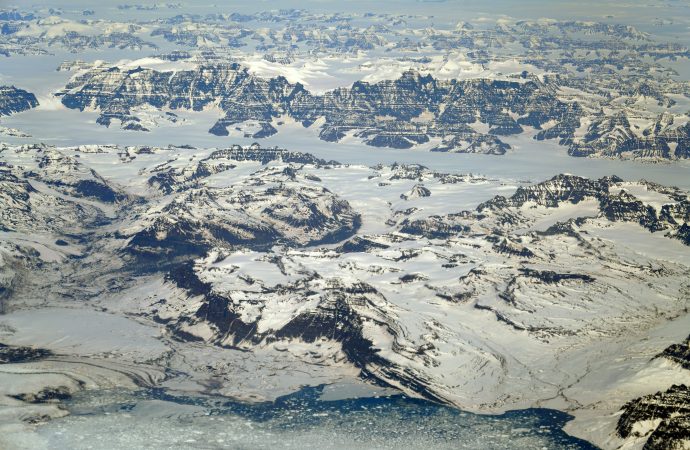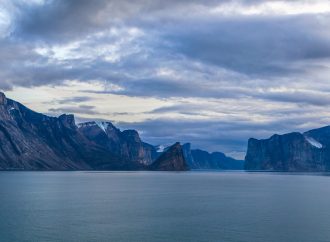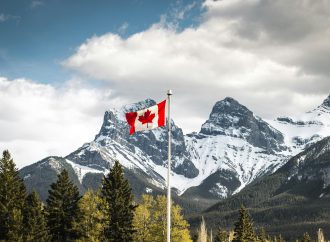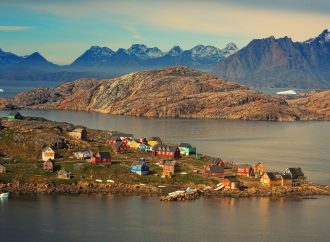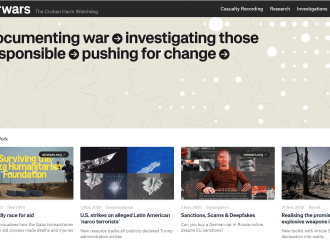When Donald Trump suggested buying Greenland in 2019, and flirted with annexing the island in 2025, reactions in Copenhagen, Nuuk, and other Arctic capitals were incredulous. The proposal seemed crude, even absurd. Yet the very fact that Greenland could capture the attention of a U.S. president highlights a deeper puzzle: why do states still care so much about the world’s most inhospitable real estate, to the extent that Greenland, Svalbard and the Arctic seabed have risen rapidly on the international agenda over the last 15-20 years?
The conventional answers point to strategic interest and economic gain. Greenland is critical to North Atlantic security, while the Arctic as a whole is often described as a future corridor for global shipping and a storehouse of valuable resources. But these explanations fall short, both in the U.S. case and more generally. The U.S. already enjoys nearly unrestricted access to Greenland for military purposes, and Arctic shipping remains limited compared to early predictions. As for resources (especially rare earth elements and other minerals supposedly locked beneath Greenland’s ice) many are cheaper to mine in less hostile environments.
So why does Greenland matter? And why do smaller states like Denmark and Norway treat polar possessions as prized assets rather than burdens? The answer lies in the intersection of status and possession, with resources playing a supporting yet symbolically powerful role.
The Mirage of Arctic Riches
From the late 2000s, headlines warned of a “cold rush” or “scramble for the Arctic,” framing the region as the next frontier of resource competition. Greenland was at the centre of this narrative, with speculation about rare earth deposits that could offset dependence on China, and which Chinese actors might thus be interested in controlling.
The economic reality has been underwhelming. Arctic conditions make extraction costly, and global exploration has undercut the idea that rare earths are truly that rare. China itself scaled back its Greenland mining ambitions, and even today, despite renewed U.S. interest, few major projects have materialised.
This mismatch between hype and reality is striking. But the hype itself mattered. For smaller actors like Greenland, Iceland, and the Faroe Islands, resource speculation created bargaining power: the prospect of foreign investment or strategic importance gave them leverage in dealing with larger powers. For Denmark and Norway, resource narratives helped attract U.S. attention to their corner of the world, reinforcing their relevance.
Resources, then, may not deliver the expected profits, but they have functioned as status multipliers by drawing global attention northward and ensuring polar possessions remain firmly on the political map.
Possession as Political Leverage
Possession remains the bedrock of polar politics. Denmark’s hold over Greenland is not justified by profits – it is expensive to subsidise, and independence looms as a future possibility – but by the international weight it carries. Greenland secures Denmark a seat at forums like the Arctic Council and NATO discussions on northern security.
Norway’s Svalbard archipelago plays a similar role. The archipelago is resource-poor and its governance contested, but its mere existence bolsters Norway’s Arctic voice and underpins its claim to regional leadership.
In both cases, possession translates into diplomatic leverage. It ensures that smaller states are present in conversations they would otherwise be excluded from, giving them influence disproportionate to their size.
The U.S. and Trump’s Disruption
Trump’s proposals to buy Greenland highlights the fragility of this logic. By reducing Greenland to a tradable commodity, he dismissed the symbolic capital Denmark derives from possession. Strategically, the U.S. already enjoys what it needs in Greenland through basing agreements. Economically, American mining firms could pursue projects without annexation. What Trump attacked, however unintentionally, was Denmark’s status.
This is one of the reasons why the proposal was so inflammatory. Denmark has, in the past, sold colonies to the U.S. in the case of what is now known as the U.S. Virgin Islands. For Denmark, Greenland is nevertheless more than a piece of land; it is a marker of international identity. For Greenlanders, it is home and heritage. For the Arctic order more broadly, Trump’s language broke with decades of practice where resources and possession are negotiated within clubs and institutions, not through unilateral purchase offers.
Why States Still Bother
The Arctic is unlikely to deliver the windfall once predicted. Rare earths are more abundant elsewhere, and shipping through the Northern Sea Route remains limited. Yet the poles continue to draw extraordinary political attention. Why? Because they are status-rich environments. Possessing territory at the poles elevates states into exclusive clubs. Engaging in scientific research demonstrates modernity and seriousness. Even unfulfilled resource potential sustains narratives of importance, attracting investment and influence. Together, these factors create a logic in which costly, remote possessions are retained not for what they yield, but also for what they represent.
The future of the Arctic, then, will not be written solely in shipping lanes or mineral markets. It will be shaped by how states continue to use possession and resources to claim standing in the international hierarchy. In that sense, Greenland matters not because of what lies beneath its ice, but because of what it represents above it.
About the Authors
Halvard Leira, Research Director, Norwegian Institute of International Affairs (NUPI), Oslo
Benjamin de Carvalho, Research Professor, Norwegian Institute of International Affairs (NUPI), Oslo


